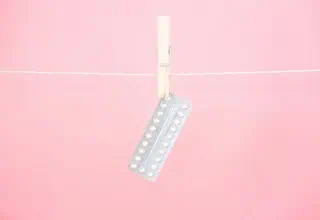
Hormonal birth control can negatively affect metabolic health and contribute to weight gain. Some types are more likely to do so than others.
Lara Briden - The Period Revolutionary
Leading the change to better periods and hormones
Hormonal birth control has several side effects including an increased risk of anxiety and depression. Alternatives to birth control include condoms, fertility awareness method, and natural treatment for women’s health problems such as endometriosis and PCOS.

Hormonal birth control can negatively affect metabolic health and contribute to weight gain. Some types are more likely to do so than others.

With the 2019 news that women don’t need pill bleeds came the assurance that “women don’t need periods.” But is that accurate?
It’s true that women don’t need monthly pill withdrawal bleeds because they’re not periods, but women do need (or at least benefit from) monthly natural menstrual cycles because that’s how women make the hormones estradiol and progesterone.

Almost all types of hormonal birth control switch off ovarian function and, therefore, switch off the ovarian hormones estradiol, testosterone, and progesterone. Here’s a bit more about each method.

The pill is commonly prescribed to “regulate periods,” but it can’t actually do that because withdrawal bleeds from contraceptive drugs are not real menstrual cycles.
In episode one of my podcast/YouTube video, I discuss real periods versus pill bleeds and why there’s no medical reason to bleed monthly on the pill.
I also look at the difference between contraceptive drugs and real hormones.